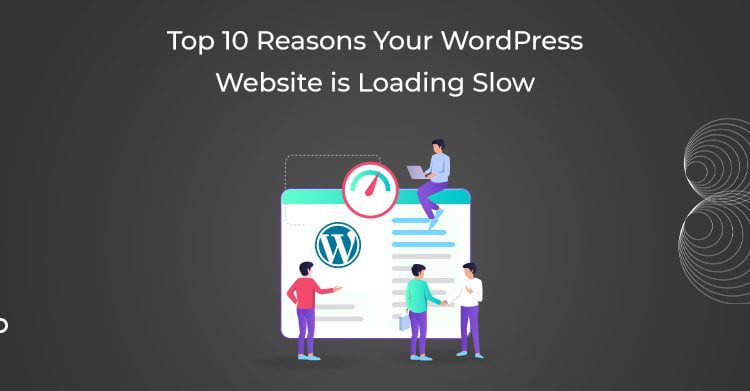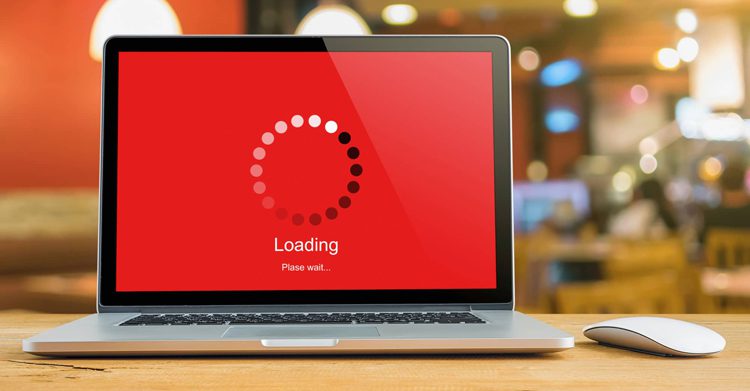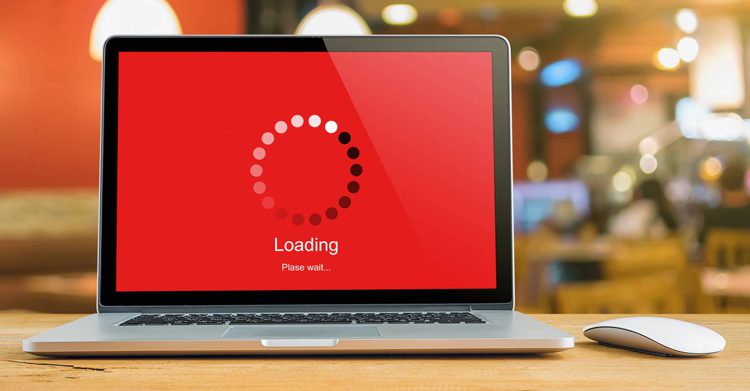
It seems that “need for speed” isn’t just a racing movie but also a general way of life these days. Not only do people expect speed, but they also make decisions at lightning speed. Did you know it takes less than 3 seconds for a person to decide if they like your website and makes an offer? So if you want an offer to stick around and buy your service, you better not be wasting those 3 precious seconds by using the plain old method of giving them something to look at. 40% of people surveyed say they instantly leave a site if it takes more than 3 seconds to load.
When potential customers cannot access your website at all because it takes too long to load, they don’t get a chance to explore your business. Slow loading speeds have also been known to cause websites to be rejected by search engines like Google because they look disorganized and unprofessional! Overall, if done poorly, loading speed can severely damage your SEO, which will undoubtedly put a damper on those sales you’re counting on. That’s why an online store owner like yourself needs to start working harder towards improving their site’s loading speed.
Tip-
A survey suggests that half of the consumers expect a web page to load within 2 seconds or less, and 40% of people abandon a website that takes more than 3 seconds to load.
To make sure a website is running at an optimum level of speed, a series of tests should be performed to check the loading times. Various tools can be used to test loading times, but it’s important not to ignore the fundamentals of web development and what may be slowing a site down – which we will now discuss.
How slow is a “Slow Website”?

Source: MG
It is said that the ideal loading speed for any website is about 1 to 2 seconds. There are so many reasons why a website can bog down and appear slow, but we have detailed the most common ones and tied them to WordPress just for you. To measure your site’s loading speed, enter your URL on any of our favorite high-tech tools like Pingdom, GTMetrix or WebPageTest. They’ll tell you your loading time and pinpoint some areas where you can improve by correcting basic mistakes like making sure the images are not too big so that there’s less for the server to pull down with every page load.
Why is My Site Running Slow?
If you think your website is loading slowly, you might be wondering why and what you can do about it. Here at SecureITpress, we’ve compiled a list of potential culprits that may affect your site’s loading speed.
Unoptimized Images
One of the most common reasons behind website slowness is usually a large volume of unoptimized images. Typically an image’s file size is directly proportional to its resolution, so more pixels mean more kilobytes and slower page load times. So make sure you’re optimizing your images as much as possible by reducing their file size in Photoshop or some other image editing software.
Many External Elements
Frequently, developers install way too many plugins on a website, which drastically slows down response times. Between your theme and all of the additional plugins installed on your site, you’ll find that there are probably dozens of scripts running asynchronously both on your homepage and throughout each page.
You can view all the requests made by any web page using the developer tools in the Google Chrome browser. All you have to do is load up a page you want to analyze and right-click anywhere, then choose “Inspect Element”.
No CDN
If you’re getting numerous traffic, it’s important to configure a CDN, i.e., Content Delivery Network, to ensure that your website works fast. A Content Delivery Network will boost your website speed by hosting copies of your website in many server locations and then serving them from the nearest location to your visitors. It cut downloading time of your website by lessening the distance that data needs to travel. And that’s the main reason you should consider adding it to the hosting plan for your WordPress website. Ensure that it’s configured properly, so your domain enjoys several benefits of unnecessary hosting.
Using Poor-quality Plugins and Themes
Another reason that websites slowdown is the use of poor-quality plugins? This can be problematic because so many untrusted third-party plugins are either made poorly or aren’t up-to-date with the latest WordPress technology, so they can’t offer the best performance and protection.
Not Updating WordPress Core, Plugins, and Themes
Outdated WordPress websites are not just a security risk, but they also effect on website. If your website is running slow, this could be the main reason, an outdated Core WordPress version, old plugins and themes. WordPress updates are designed to improve performance and speed on any device.
Minify CSS, HTML, JS, & Other Files
Computers work at top speed when there aren’t complicated coding requirements slowing them down. You can optimize a site’s loading time by modifying all CSS, HTML, and JS files to reduce their excess size. Many plugins can help you get this done, such as Minify and Autoptimize.
Not Making Use of Caching Techniques
Caching is proven to improve performance dramatically. But if you don’t use it, it’s clear that your website won’t perform as well as it could. Caching is the method of storing frequently requested content and serving the cached version later on, rather than generating the same content repeatedly. It speeds up the data retrieval process by reducing time-consuming operations like compiling input data or SQL queries. When implemented correctly, browser HTTP caches and server-side caching can give you a definite edge when improving your site’s performance!
Too Many Ads
No doubt, advertisement on your website brings a lot of money to your business, but it shouldn’t be at the cost of performance. Display advertising can add hundreds of HTTP requests which greatly impact the load time of your website. Although this is bad for our profit and, therefore, business, it’s also very bad for SEO – search engines such as Google may penalize us for lower user experience, content being delivered too slowly and even punish us for any malware we might accidentally be serving! So avoid overloading your website with too many ads if possible, as it will compromise user experience and jeopardize search engine rankings.
To sum things up, limiting the number of display advertisements on your page will ensure that your landing page runs more efficiently. However, there are ways to help speed up your page without removing ads altogether. The team at Solitaire with Buddies learned that loading ads based on a timed delay when users started their game led to fewer ads and faster loading times. This, in turn, helped the site maintain its ad revenue while increasing user satisfaction!
Problems with Your Hosting Provider
Select trusted and tested hosting providers who provide live 24/7 customer care services, regular website monitoring and automatic failover in the unfortunate case something goes wrong. We recommend choosing a provider together with a 9 min setup option to make it easier for you to get started and build an online presence sooner rather than later.
Hence, you need to host your website on the servers of a good and reputed hosting company.
Unclean Code
If your website’s load time is slow, you need to investigate why. One of the main reasons a website can be slow is something amiss with the coding. You want to make sure that access is quick with super clean code. There are no empty spaces or unnecessary comments by copy-pasting from previous drafts, so each section has its style written specifically for that bit of content. If not, you risk having duplicate content for search engines (and thus getting penalized!). Additionally, using a minifier can speed up loading times and help you improve your overall performance. One of the many regular services offered by most freelancers or web design agencies.
Final Thoughts
If you want to get higher rankings in Google and stand out from the competition, you need a fast-loading website. A page with a slow loading speed takes an eternity to load fully, whereas a page with fast loading speed takes just a few seconds. It ensures optimum user experience and makes your website more search engine friendly. For more Website care plans, you can visit our website.


[…] issues: Installing too many plugins or poorly coded plugins can slow down your website’s performance, resulting in a poor user […]
[…] loading time, allowing you to remove or replace them with faster alternatives. This can improve your website’s loading speed, resulting in better search engine […]